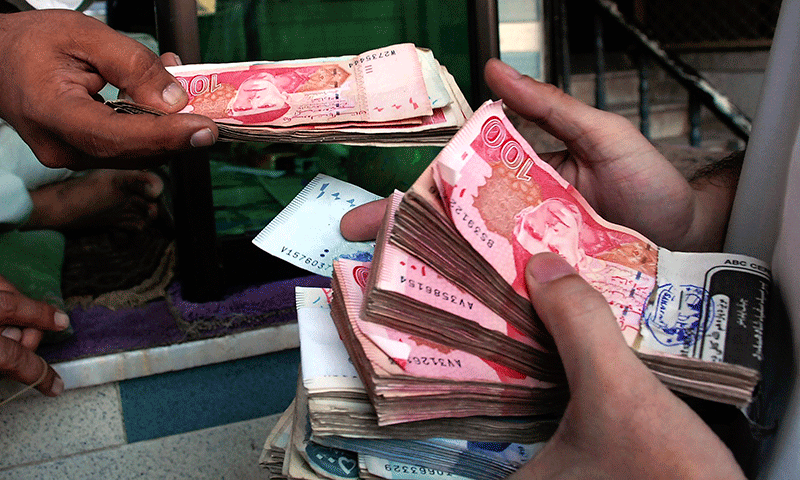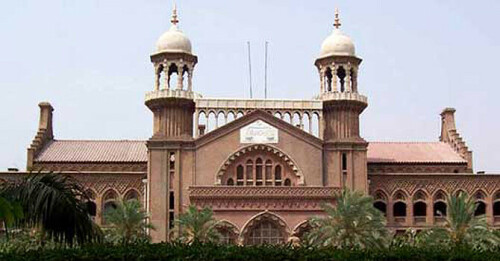 The State Bank of Pakistan (SBP) has recently issued instructions/guidance to Islamic banks and dedicated bank branches offering Shariah-compliant products. In the guidelines, various products have been divided into three modes i.e. participatory mode; trading mode and debt-based mode.
The State Bank of Pakistan (SBP) has recently issued instructions/guidance to Islamic banks and dedicated bank branches offering Shariah-compliant products. In the guidelines, various products have been divided into three modes i.e. participatory mode; trading mode and debt-based mode.
While reading these instructions, the first question that comes to mind is, “Does the establishment of these ‘Islamic banking institutions’ amounts to compliance with Quranic injunction on prohibition of Riba or, for that matter, constitutional provision regarding elimination of Riba from the economy”. The second question that needs to be answered is, “Will these ‘Institutions’ eventually lead to elimination of Riba from the economy?”
There are other related issues which we will also discuss under the five headings: meaning of Riba; Islamic banks (so-called); full implications of the Quranic injunction; how to go about the task of eliminating Riba; and are we ready to undertake the task?
Meaning of Riba: There is no consensus among the scholars as to when a rate of interest becomes exploitative or usurious. Be that as it may, in the present global economic environment Riba can only be defined as ‘real rate’ of interest as opposed to ‘nominal rate’. Real rate means nominal rate, i.e. the rate actually charged by banks, minus current rate of inflation. When there was no paper currency, there was hardly any difference between purchasing power of bullion and gold or silver coins used as currency. Every one knew gold or silver content of each coin. When a borrower returned the same amount of coins to the lender that he had borrowed, he returned the same amount of bullion unless the coins had been deliberately debased by that time. The lender suffered no loss.
Now a days when high rates of inflation are common, the lender will suffer a loss if he is paid back the borrowed amount, in paper money, without compensating for inflation. In order to get back the same amount of purchasing power which he had lent to the borrower, the lender must be compensated for inflation.
This also appears to be the intention of Quranic injunction on prohibition of Riba. Verse 2:279 says: “If you repent you shall have (the right to) your principal, wrong not and you shall not be wronged.” If we insist, as some orthodox ulema do, that a lender, be he an individual or a bank, is entitled to get back the same amount that he lent in the currency in use at the time of re-payment, would he not be wronged? By not compensating him for inflation would we not be ignoring Quranic injunction to wrong neither the lender nor the borrower?
Acceptance of the above definition of Riba does not, however, mean that all problems have been solved. Far from it. It will, however, clear the way for elimination of Riba.
Islamic banks: SBP’s guidelines would show that any financial institution that restricts its operation to so-called Shariah compliant modes of banking and finance, could hardly be called a banking institution in the present sense of the term. And if it performed other banking functions also it would be a hybrid institution hardly deserving the title of an ‘Islamic Banking Institution’. Financing provided under the six approved trading modes turns a bank virtually into a trader, buying and selling different commodities.
Let us take the example of a farmer needing finance for agricultural inputs. The guidelines require that the bank buys the inputs, directly or through an agent, and then sells them to the farmer on deferred payment. What happens is that documents are drawn up as if such a transaction has taken place when, in actual fact, the farmer and the bank both know it is a loan to be re-paid with interest. Similar was the case with long-term foreign currency bonds sold by government a few years back.
The documents were drawn up to show that the government had mortgaged the land under the Motorway to the bond buying consortium who then leased the same land back to the government. While redeeming the bonds, the government also paid the accrued interest, which was termed as lease charges on the land which had been notionally mortgaged by the government and then leased back to it by the consortium of lenders. Such a transaction was called by our medieval jurists as heela.
A heela may be defined as a device to comply with the letter of the law without complying with its spirit and substance. Medieval books of Fiqah are filled with examples of heela used by unscrupulous lenders and borrowers. The irony, that even banks owned by non-Muslims have been allowed to practice ‘Islamic banking’, seems to have been lost on the State Bank. If we must persist in this charade let us call it interest free banking instead of ‘Islamic Banking’ though it is not even that. Musharka and Leasing are the only two financing methods which are interest-free, but can we cover the whole spectrum of banking activities by these two instruments?
Another issue left unresolved by the SBP’s guidelines is relationship of banker and depositor. Under the existing banking laws, a banker is his depositor’s debtor, whether the depositor is a time depositor, saving account holder or a current account holder. The depositor is, therefore, not entitled to any profit on his deposit under the Sharia. The depositor is entitled to get back only the amount lent by him to the banker.
On the other hand, if the relationship is defined as that of a Rabbulmal and Mudarib, then it is not a banking relationship at all. If the banker is considered to be a trustee of depositor, he cannot use his money for any purpose under the Sharia. In order to evolve a proper Riba-free model of a banking institute, we will have to think afresh and discard the medieval trading modes in which we have boxed ourselves. Ijtehad would be needed to resolve the problem of relationship between banker and depositor.
Implications of Quranic injunction: To think that Quranic injunction against Riba requires us only to establish banking institutions that go under the name of Islamic banks, or even genuinely interest free banks, is to misread the relevant verse of the Quran. Prohibition of Riba means, in essence, that capital alone cannot be allowed to create additional wealth. This is the reason why when a person is lent money, even for productive purposes, the lender is entitled to get back only the sum lent by him. Since he did not participate in the productive process, nor did he share the risks of the entrepreneur, he cannot demand a share in the additional wealth that his capital may have helped to create.
To eliminate Riba, we have to create an economy based on equity capital instead of debt or equity-cum-debt. A question may be raised at this stage that if entrepreneurs are not allowed to borrow from the capital market, they will not be able to raise investment capital. This is an unfounded apprehension. If investment is a function of savings, as all economists tell us, investment will take place if there are savings in the economy. Problem may arise if sufficient domestic savings are not available and capital needed for economic development has to be obtained from abroad. Since all the required capital may not be forthcoming as equity investment, we will have to allow payment of interest on borrowed foreign capital. How such an economy could be created, provided there was the will to do so, is discussed in the next section.
(nkhan@magic.net.pk)
(The writer is a former head of a nationalised bank)
To be continued














































Dear visitor, the comments section is undergoing an overhaul and will return soon.